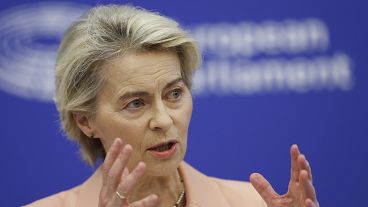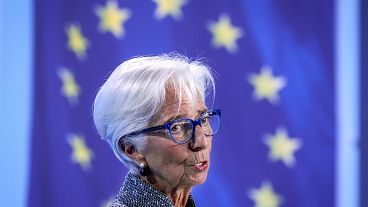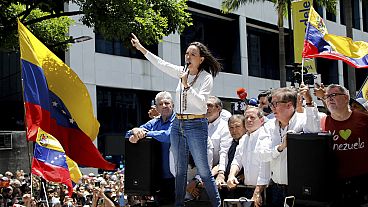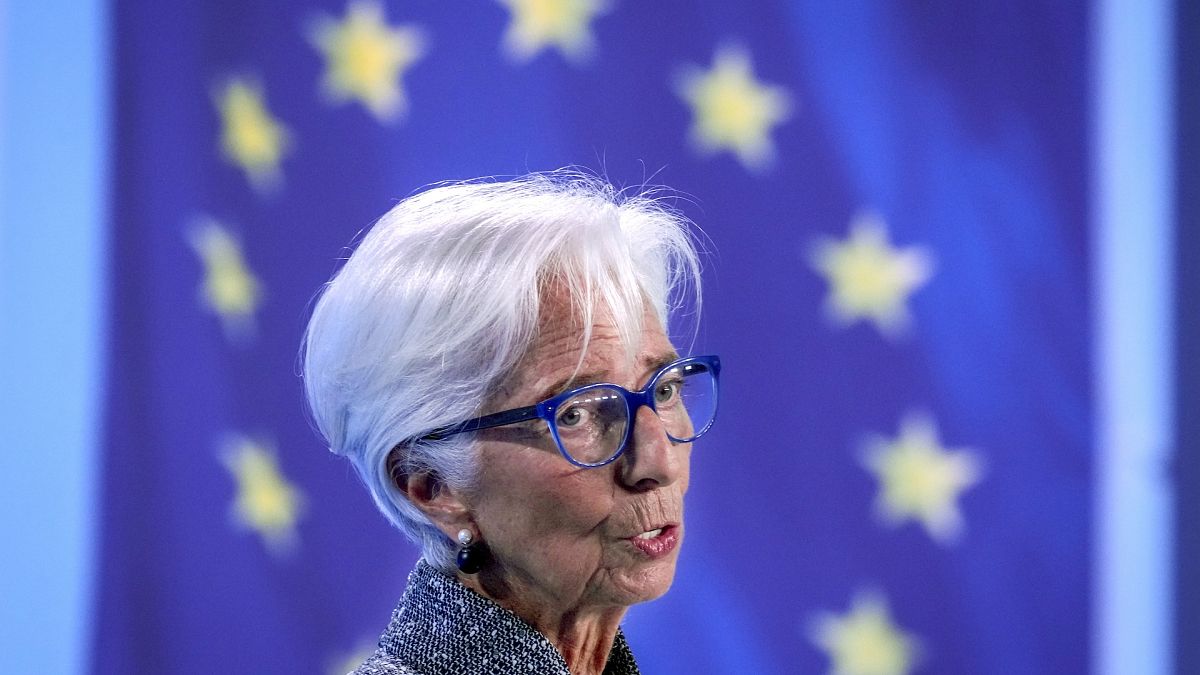ECB President Christine Lagarde praised the "remarkable" unwinding of inflation with minimal job losses, projecting inflation to hit target by 2025. However, she warned that significant uncertainties remain.
European Central Bank President Christine Lagarde has hailed the "remarkable" unwinding of price pressures that have gripped the global economy over the past three years, emphasising its minimal impact on employment and predicting that European inflation will return to target by mid-2025.
"It is rare to avoid a major deterioration in unemployment when central banks rise interest rates in response to high energy prices," Lagarde said.
However, Lagarde cautioned that "uncertainty ahead is still profound", as the global economy is currently facing "transformational changes".
Lagarde delivered these comments during her keynote speech at the 2024 Michel Camdessus Central Banking Lecture organised by the International Monetary Fund (IMF) in Washington, an institution she led during pivotal moments such as the aftermath of the Great Financial Crisis and the Eurozone sovereign debt crisis. In her remarks, Lagarde stressed the need for adaptive monetary policy in an era of structural change.
Effectiveness of monetary policy tied to the evolving economy
In her speech, Lagarde outlined the immense challenges that the global economy has faced in recent years.
"Four years ago, we confronted the worst pandemic since the 1920s, the worst conflict in Europe since the 1940s, and the worst energy shock since the 1970s."
She explained that shocks have fundamentally altered the economic landscape and complicated the transmission of monetary policy.
She acknowledged that clearly defined inflation targets, flexible policy tools, and analytical frameworks capable of assessing and responding to economic shifts have enabled monetary policy to restore price stability without imposing excessive costs on the economy.
"Our monetary policy strategies have proved effective, mitigating trade-offs between inflation and employment," she stated.
Structural economic shifts: Parallels between the 1920s and 2020s
Drawing historical parallels, Lagarde pointed to striking similarities between the post-World War I economy of the 1920s and the current decade.
Both periods saw setbacks in global trade integration paired with strides forward in technological progress. However, Lagarde acknowledged that today's challenges - such as climate change and ageing populations - are unique to our times.
In the 1920s, the collapse of the Pax Britannica and the rise of economic nationalism led to a sharp fragmentation of the global economy.
Trade as a share of GDP plummeted, contributing to deflation and economic instability. At the same time, rapid technological advancements, such as the rise of the assembly line and the internal combustion engine, propelled productivity but also fuelled speculative bubbles, culminating in the 1929 stock market crash.
Lagarde sees a similar fragmentation today as global value chains (GVCs) are being restructured.
Both Europe and the United States are diversifying their supply sources, with many firms embracing near-shoring strategies to mitigate vulnerabilities in global supply chains.
In parallel, technological advancements in artificial intelligence (AI) and fintech are reshaping industries, offering faster and cheaper credit access, while posing new challenges for monetary policy transmission.
Looking ahead: The need for flexibility and adaptation
Lagarde concluded by emphasising the importance of adaptability in monetary policy as the global economy continues to evolve. The ECB's upcoming 2025 strategy review will focus on understanding the long-term structural shifts in the post-pandemic world, with a specific emphasis on how these changes affect monetary policy transmission.
Artificial intelligence (AI) and machine learning will play a critical role in improving forecasting models, especially for inflation nowcasting.
Lagarde's speech underscored that monetary policy must remain dynamic to keep pace with a world in flux.
While the fundamental goals of monetary policy - especially price stability - remain unchanged, central banks must remain flexible, adjusting to the realities of a rapidly transforming global economy.
As Lagarde aptly put it: "Stability should not mean rigidity."















